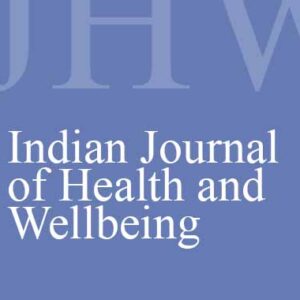
Study on the role of attachment with parents and peers and depressive symptoms on the reproductive health of adolescent boys and girls
Original price was: ₹ 202.00.₹ 200.00Current price is: ₹ 200.00.
Pages: 777-785
Kriti Sarkar and Anjali Ray (Department of Applied Psychology, University of Calcutta, Kolkata, West Bengal )
Reproductive health awareness addresses the reproductive processes, functions and system at all stages of life. Reproductive health awareness must be understood in the context of relationships, attachment styles with the family and peers, fulfillment of affection needs and risk taking. The Reproductive Health of the secondary school students can be considered as a construct of combination of 6 domains1) sex education, 2) openness about sex, 3) sex activities, 4)sexual health knowledge, 5)reproductive health knowledge and 6)nutrition. Research suggests that adolescents who feel accepted by their family are less likely to engage in a wide range of health risk behaviours, those who perceive rejection from parents/family are more likely to be hostile and aggressive, have lower self-esteem and increased emotional instability. Peer group acceptance and negative or positive influence in reproductive health behaviours and practices in turn may result in depressive symptoms. Depression can also result in decline in academic performance, greater substance abuse, risky sexual behaviours, mood swings, poor hygiene maintenance and irregular eating practices and disorders. The profile of reproductive health (domains) of the students displayed uniqueness with respect to the board of education (ICSE/ISC, CBSE & WBBSE) and gender (male and female). There lies significant difference in the reproductive health of the “control”, “vulnerable” and “at-risk” groups having depression symptoms. Peers rather than parents have been shown to play a significantly important role in determining the reproductive health of adolescent boys and girls across all boards of education under study.
Description
Pages: 777-785
Kriti Sarkar and Anjali Ray (Department of Applied Psychology, University of Calcutta, Kolkata, West Bengal )
